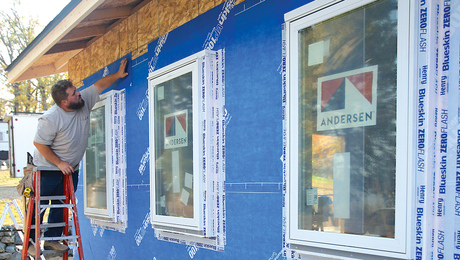Ok, I wrestled with some wiring today and almost got whupped.
Luckily a coworker showed up with his multi-tester (Fluke) and we fingered it out.
So’s I be thinkin’ .that is is time to update my 20 Y.O. radio shack tester with a newfangled professional type one.
And maybe a circuit tracer.
Anyone got any useful (or not) input, opinions, experience, rumours, with this stuff that they would like to share?
Also are there any online places I should check out for good deals on them?
Thanx in advance All!
Mr T
Do not try this at home!
I am an Experienced Professional!



















Replies
Which SCM, table saw or cordless decision would be easier.
I prefer Fluke and have the 97..
This outfit has several brands. http://www.johnstonesupply.com
Place to start any ways...
Who ever invented work didn't know how to fish....
T-man,
Yea, this is like asking, "which framing hammer should I buy?" Once you limit yourself to higher-quality testers, the choice is pretty subjective.
Anyway, my regular tester is the Fluke T-5. It's a digital multi-meter and clamp-on ammeter in a tester package. Leads and probes are stout, and you can pull a probe off it's lead and plug on an alligator clip. Very handy.
If I'm in a spot where I want to carry only one voltage tester (like a tough crawl in an attic), I take the Ideal Vol-Con Elite w/shaker. It's got a built-in non-contact voltage tester, continuity tester (w/beeper), and replaceable leads for the contact voltage tester (any standards test lead w/ banana plug will fit). And most importantly, the voltage tester is low-impedance (like the Wiggy), so ghost voltage won't fool it. As far as I'm concerned, it doesn't quite have the quality feel of the Fluke, but the features (integrated non-contact tester and the low-impedance voltage tester) mean I don't have to carry two other testers.
See FH mag Nov 2002 (issue 150) for my writeup and discussion on this.
Keep in mind that if you want a quality, multi-function tester, plan to spend about $80-100 bucks. Think of it as cheap insurance.
Cliff
I use a fluke 12 to earn my bread, it's certanly good enough for 99%, the other 1% is with a megger or amprobe. But for someone who just occasionally needs a meter you cannot go wrong with the Wiggey.
How much money you got in them pockets ;)
bake
The brand I have trouble with is " Sperry" from HD. They are usually broken by the time you get home from the store. I have Fluke, simpson, and autowave in my box.
The best employee you can have but you wouldn't want him as a neighbor " He the shifty type"
What's a "Wiggy"
Man I feel like thius is a setup for some bad electrician inside-joke. :)Mr T
Do not try this at home!
I am an Experienced Professional!
Wiggy is what you get when white guys try to get Jiggy wit it.
Get more info...On-Line CatalogCompetitive Cross Reference CAD Drawings Machine Safeguarding
Wiggy Voltage TesterThe venerable Wiggy¯ Voltage Tester has been on the market sine 1918. This modern day, solenoid type version now incorporates many additional features.
Features and Benefits
One piece molded housing is made of tough ABS plastic to withstand hard knocks and falls.
Compact design has slotted receptacles for storing and holding electrical prods
Scar resistant textured finish
Easy to read color scale indicates voltage range:120-240-480-600 Volts AC at 50/60 Hz120-240-600 Volts DC Copyright Schneider Electric. All Rights Reserved.
Possibly the single most reliable and useful test instrument you can get. I use it for about 90% of what I do. A homeowner might very well need no other instrument. No batteries required. I have six or seven testing instruments worth well over a thousand dollars and I still reach for a "Wiggy" first. There are quite a few copies out there. Some come with a nifty continuity tester feature. I think the original is still the best.
I use a meter like most of these guys are telling you and I also have a circuit tracer for tracking down dead shorts, tracing wire runs, etc. It is made (or sold) by GreenLee. Mine is about 10 years old and they now have more improved versions. Believe it ran $200-300 back then.
My job entails traveling to several utility coal fired power plants where I work with the plant's electricians and instrument and controls technicians. It is a tough environment for any electrical devices and almost universally Fluke multimeters are used. I use one extensively and have had the same one for a few years of use. I've used Beckmans and other cheaper brands but for durability I think the Fluke brand is the best I have seen. Good Luck
I generallly use a original style Wiggy but I think you'll find a lot of uses for the clamp-on multimeters as well. They run about ~100 for a decent one, great if you are adding in a circuit at the panel, you can clamp on to the other wires going in and see what everything's drawing. Also good when dealing with poorly installed boxes/switches/fixtures where unscrewing the wires to get a reading will put them in closer proximity to you than you like. Just spent 4 days in the last 2 weeks dealing with live 277volt fixtures for a good part of the day..good enough to avoid shock but sure do like things dead better.
-Ray